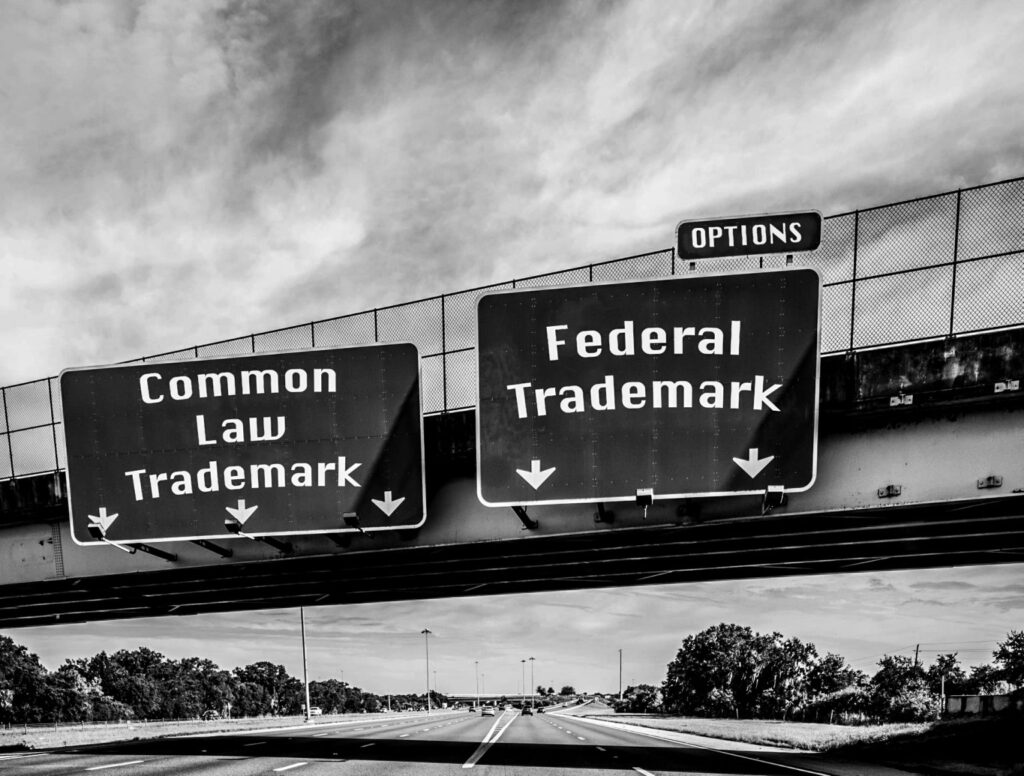Trademarks are names that owners assign to their businesses or products to give them a distinguishable identity and origin. Trademarks are all around us, from the clothes and shoes we wear (Nike, Adidas, Doc Martens) to the stores we shop at (Walmart, Publix, Target). Almost every business or product has a unique name that helps consumers easily differentiate between products and services. Many large and national corporations have their trademark names federally registered to protect them from trademark infringement, copycats looking to counterfeit their products, or competitors that want to use a similar/identical trademark name.
Smaller-scale and local businesses may not be aware of the benefits and protections of trademark registration. Yet, even if your trademark is not registered with the United States Patent and Trademark Office (USPTO), you are still entitled to common law rights through the simple act of using your trademark in commerce. Please keep in mind that only distinctive marks (fanciful, arbitrary, descriptive, or suggestive) can be protected. Generic names (such as “Food Delivery” for a food delivery service) have no protection.
Common law trademark rights are geographically limited to your local area of business and to regions where your business might naturally expand (termed the “zone of natural expansion”). It will also be your responsibility to enforce your trademark protections. Doing so may include opposing or canceling an infringing federal trademark application, sending cease-and-desist letters to infringing competitors, and more. Failure to protect your common law trademark could result in losing your common law protections.
Additionally, common law trademark rights are granted only as long as your trademark is used in commerce. Actual and ongoing use is the best way to maintain your common law rights. It is also good practice to keep documentation of your earliest use. Having this information is essential in future cases where you must demonstrate proof of ownership and priority of use (the first person to use the trademark in your geographic location).
In cases of dispute, the senior user (the first to use the trademark) has priority of use. You can help prevent trademark disputes by letting others know of your ownership through the TM symbol (™). By adding this at the end of your trademarked material, competitors will know that you intend to protect your name. Conveniently, you do not need to register your name to use the TM symbol.
While common law rights provide certain benefits, these are limited compared to USPTO registered trademarks. The most hindering disadvantage of common law trademarks is the limited scope of protection. Your trademark will only be protected in the geographic location wherein you use your mark in connection to your products or services. Registered trademarks, on the other hand, have protection across the United States. Another benefit of registration is the listing of your name within the USPTO database. You will be recognized as the owner of your mark, and competitors who may want to use or register your name will be made aware that your name is taken during the trademark search process.
Despite the broader protections of federally registered trademarks, be aware that registration does not grant priority of use over common law trademarks. For example, if someone established a common law trademark with your same name in a particular region before you, your registered trademark would be allowed in commerce throughout the United States except for that same region, as well as any areas to which they may reasonably expand.
The difference between federal trademarks and common law trademarks is simple: one is registered and one is not. Yet, this small difference can significantly impact the future of your business. The lack of registration may geographically restrict your commercial potential. Facing infringement disputes will also be more inconvenient as the responsibility rests on the owner to keep track of records. Many business owners may not even be aware they can federally register their names, but that is why common law rights exist to protect everyone, even if they do not do so to the greatest extent possible. If you prefer broader protections, it is best to register your trademark as soon as possible. At Alcoba Law Group, our experienced trademark attorneys have registered over a thousand trademarks for business owners and entrepreneurs. We welcome you to contact us if you need any help with registration or have any more questions regarding common law protections.
Written by: David Sacasa Ⓒ 2021 Alcoba Law Group P.A.
Picture Credits: Miri Paez Bolet.
Reviewed by: Ruben Alcoba






